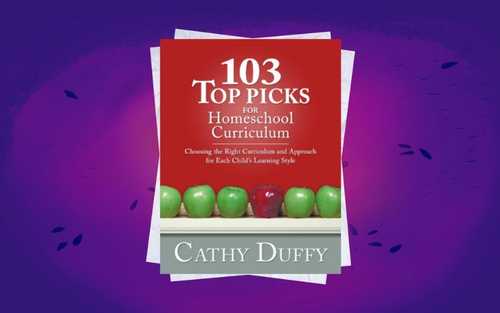How To Homeschool Language Arts


Teaching language arts can be a rewarding, yet challenging adventure. Language arts is a core subject, and something your child will need to learn in early school years, all the way to high school and beyond. As homeschoolers, it can be difficult to find a balance between what your child enjoys learning, and the skills they need in order to succeed academically, but we’re here to help.
There are thousands of ways to teach English language arts, and whether you’re using a pre-planned homeschool language arts curriculum, or creating your own lessons, we’re here to guide you through how you can successfully teach this core subject in a fantastically fun way!

Challenges
The right choice
In the world of homeschooling, language arts curriculum choices are vast. Picking the right one for your child can be overwhelming and daunting, especially if you’re a homeschool newbie. We recommend reading and/or watching language arts curriculum reviews until you find the one you think your child would enjoy most.
Multitasking
Homeschool parents wear many hats, from chef, to coach, to tutor. How do you ensure that language arts doesn't get lost in the shuffle of subjects, or worse, become the root of arguments?
As your child moves through grade levels, the challenge to provide a well-rounded learning experience grows, with more subjects and important topics being added on a regular basis. While multitasking is often non-negotiable, it’s crucial that you stick to your plan, and find a routine that works for your homeschool life!
If you find yourself feeling overwhelmed by the requirements of homeschooling, you can opt for a structured homeschool language arts program, as it’ll provide you with pre-planned lessons, activities, and resources.
Creativity vs structure
Nurturing your child's creativity while instilling essential language arts skills can feel like an impossible mission. As a homeschool mom, dad, or grandparent, it’s easy to put your child’s interests and favorite subjects first, but it’s important to find a balance between providing a fun learning experience and helping them develop a variety of academic skills.

Language arts activities
1. Storytelling with props and costumes
Encourage your child to create their own stories using props and costumes. This hands-on activity not only sparks creativity but also helps kids visualize characters, settings, and story structure. They can act out their stories, making this an awesome, interactive learning experience!
2. Start a book club
Start a book club with other homeschooling families, friends, or simply as a family. Let the children pick a book and give them a time frame for completing the book. When everyone is done reading the book, organize a book club meeting where you can discuss the plot, characters, and your child’s favorite parts of the story. This activity is great for reluctant readers, as it gives them clear goals and instils some competition, turning reading into a game!
3. Pen pals or writing letters
This activity is great to build writing skills, while also connecting with real-life friends, family, or pen pals who live in other cities, states, or even countries! Writing letters is an amazing way to stay in touch with loved ones while getting your child to practice their communication and writing skills. The more they do it, the easier the writing process will become for them, which means improving their general language arts skills!

4. Literary scavenger hunt
Create a literary scavenger hunt by hiding passages from books, poems, or different literary techniques around your home. Give clues related to parts of speech or literary elements, such as metaphors, similes, themes, characters, or specific vocabulary words. This game will transform the way your child learns all the technical elements of writing, making it easier to process, and fun!
5. Interactive grammar games
There are thousands of online resources and board games designed to make learning grammar rules fun. Games like grammar bingo, word puzzles, or interactive apps can reinforce language arts concepts in an engaging and entertaining way. Using games to teach these skills is highly effective, as it breaks down difficult concepts into small snippets of information, showing children how easy grammar can be!
6. Creative writing prompts
Need some inspiration? Try sharing creative writing prompts with your child - these can range from picture writing prompts, to journaling, to writing poetry! You can find creative writing prompts in your homeschool curriculum workbooks, online, or using a digital program.
7. Phonics word relay game
This engaging phonics activity is perfect for your child to practice word pronunciation and spelling. To play this game, you’ll need at least two teams. Each team will take turns as the "writing team" and the "guessing team." The writing team is given a word from your phonics list and must sound out the word before spelling it within a time limit. If they get it right, their team earns a point; if they get it wrong, the other team can have a go. Rotate roles after each round and keep score on a board or paper. It's a fun way to reinforce phonics while promoting teamwork and spelling skills!
8. Try Night Zookeeper

Night Zookeeper makes reading & writing fantastically fun for children aged six to twelve!
Our award-winning language arts program offers an all-in-one approach to teaching language arts, turning reading, writing, spelling, grammar, punctuation and vocabulary into a game, keeping children engaged and entertained.
By using our reading & writing program as your homeschool language arts curriculum, you’ll have access to pre-planned writing assignments, interactive lessons, reading comprehension challenges, a detailed progress tracker, and personalized feedback on all of your child’s work!
Sign up today to get a FREE 7-day trial!
Got any questions? Reach out to us via email at support@nightzookeeper.com and follow us on social media:


Make Reading & Writing Fantastically Fun!
- Award-winning reading & writing program for kids
- Improves spelling, grammar, punctuation & vocabulary
- Over 1,000 different learning games and activities


Cathy Duffy Picks Night Zookeeper in 103 Top Picks for Homeschool Curriculum!


“My child hates writing.” What do I do?


Why is Language Arts Important?


